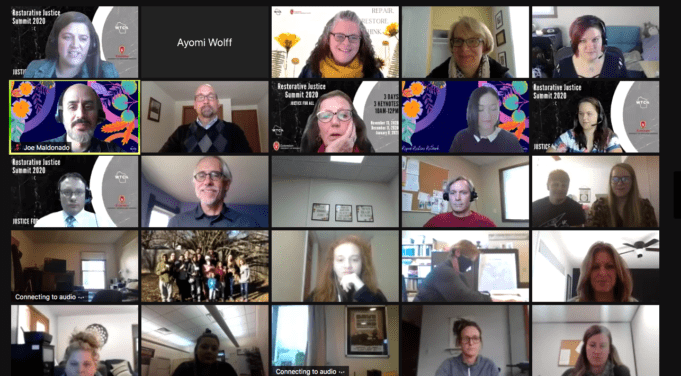The University of Wisconsin-Madison Division of Extension Community Youth Development program, in partnership with the Wisconsin Teen Court Association, hosted the first day of their Restorative Justice Summit on Nov. 13.
The summit began with a presentation from Johnathan Scharrer in which he discussed his keynote speech, “Making Youth Courts More Restorative.” Scharrer began his keynote with a statement on the paradoxical nature of youth courts.
“There really is nothing necessary restorative about youth courts. In order to be a restorative justice process, there really needs to be a great deal of intentionality.”
Scharrer then explained ways in which youth courts could adapt their models to include a more restorative justice approach.
“I would caution against the over-identification with the criminal justice system and recognize that restorative justice is a collaborative process. This is not an ‘us versus them’ good or righteous actors. We’re just people who make choices. Often choices, that makes sense to understand their frame for why,” Scharrer said. “There needs to be something different about this if we’re actually talking about a restorative process.
“We want people to feel included and to be included in that decision-making process so that means they should have ideas about that and can contribute and do have a voice and sort of weigh in on that process. So it should be collaborative. It should be something that we reach sort of unanimity on and agreement on,” added Scharrer.
Scharrer ended his keynote by further emphasizing the importance of making teen courts a collaborative process.
“Because people don’t learn or grow when they’re in a space of shame.”
After the keynote, attendants were invited to take a 10-minute break followed by a series of breakout room discussions. Attendants were invited to attend one of five sessions: Jonathan Scharrer on “Overcoming Obstacles to Effective Implementation;” Dr. Ron Pupp and Amy Aldrich on “Positive Youth Initiatives;” Steve Handrich on “Youth Accountability Panels;” Fred Garcia and Maggie Marose on Youth Advisory Councils; and Monika Audette on “Victim Impact Panels.”
Youth advisory council member Maggie Marose noted the importance of having a teen voice in youth courts.
“Allowing teens to have a voice in the justice system that directly impacts them, the youth justice system has the ability to become more fair,” Marose said.
The Restorative Justice Summit will be held on the second Friday for the next two months – on Dec. 11 and Jan. 8. Registration is still ongoing and can be found here on the UW-Madison Division of Extension website.










